This Week At Angama #7
23 March 2018 | This Week at Angama | Adam Bannister
As the world collectively wept at the loss of Sudan, the last male Northern White Rhino left on Earth, the heavens opened and delivered a spectacular storm in the Maasai Mara. It was as if the gods were crying; small streams turned into raging torrents and the Mara River swelled. The loss of a large charismatic species in our lifetime is a stark reminder of how crucial it is to protect wilderness areas across the world. In This Week At Angama we showcase the storm, the water and the life – all made possible as a result of protecting the Maasai Mara.
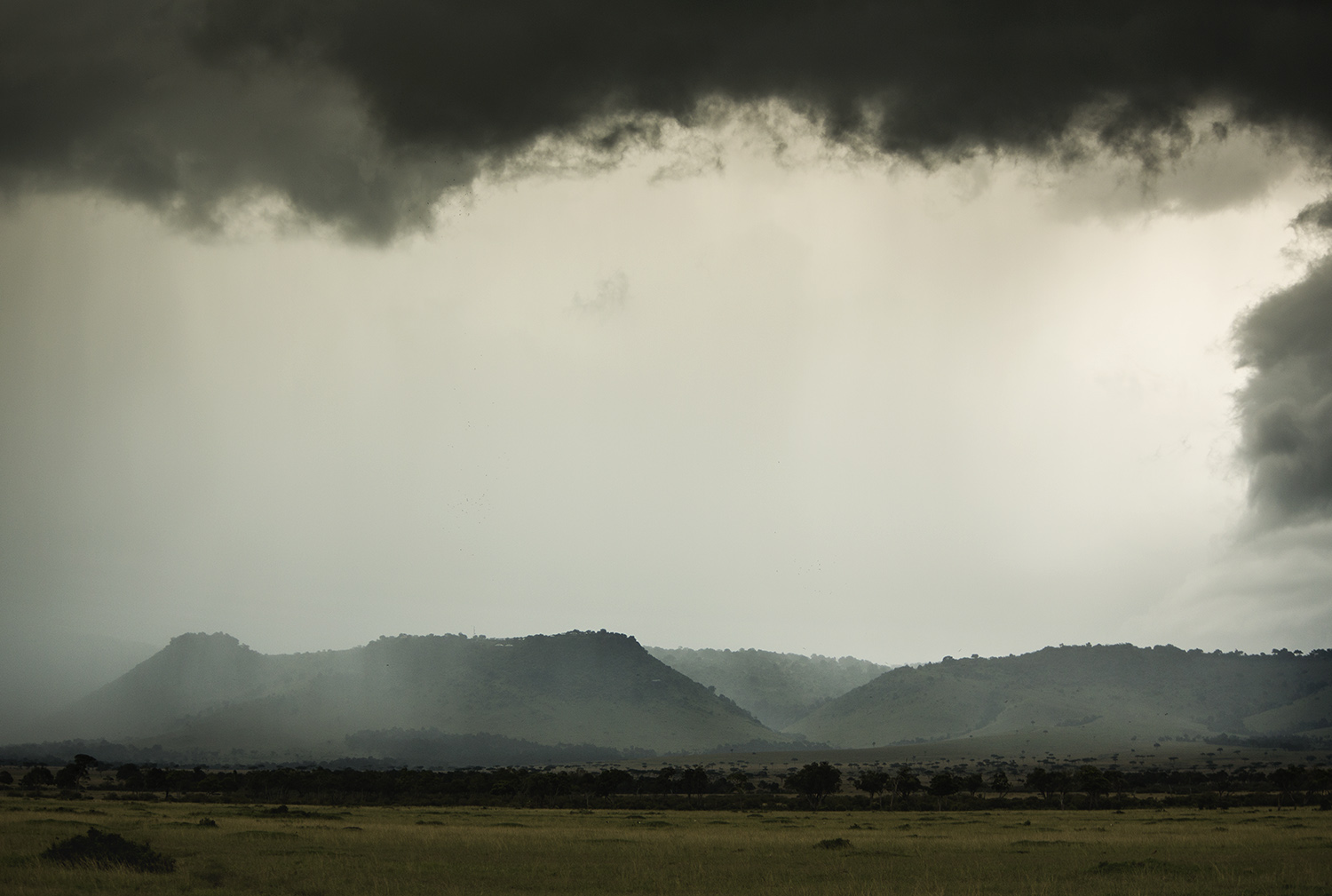
A gigantic cloud moves its way south along the Oloololo escarpment; finally settling above Angama Mara and delivering 50mm of water in less than two hours. [f 4.0, 1/400, ISO 400, + 0.33]
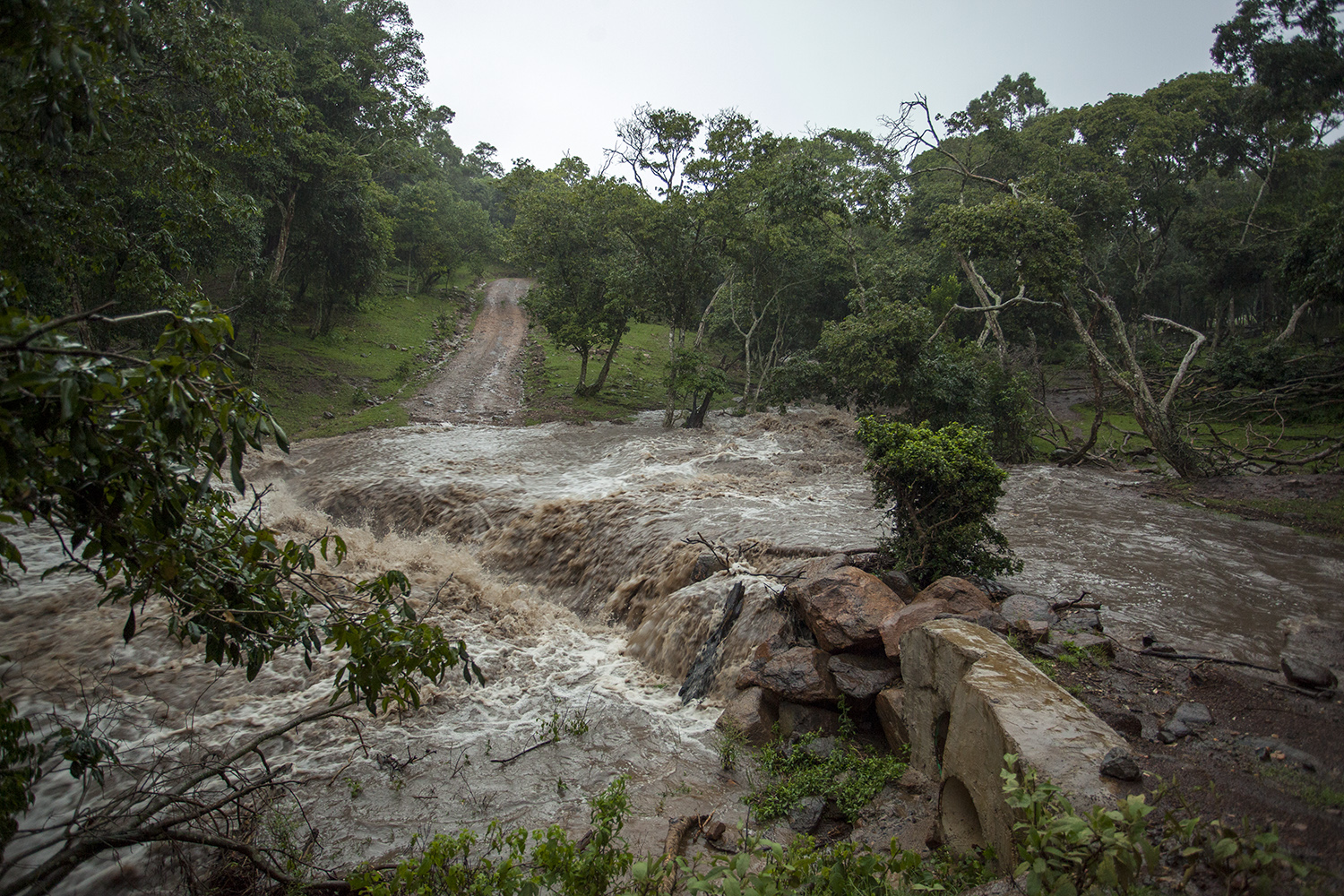
Our access road was temporarily unusable but happily a few hours after this was taken the water had dropped significantly and the road was fully passable. [f 4.0, 1/80, ISO 1600]
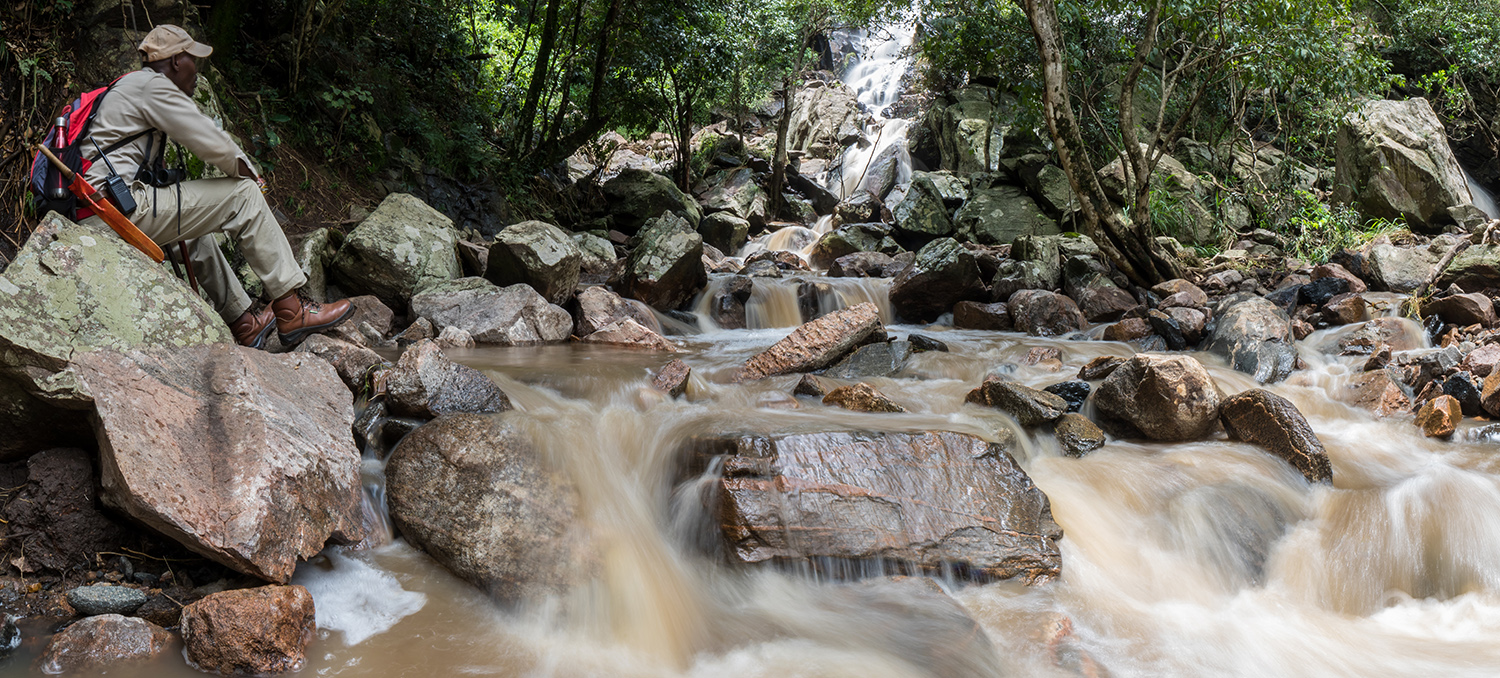
Pusi Nkariak, the small stream that runs below Angama Mara, and provides our drinking water, swelled to the highest levels seen in the last 3 years. Boulders, normally perched high above the waterline, became host to a magnitude of waterfalls. Tyler Davis and naturalist Fred Ole Sinoni took a walk along the raging stream to fully appreciate the power of water. [f 22.0, 0.3, ISO 100, -0.33] – stitched photo consisting of 3 photographs. Photograph by Tyler Davis
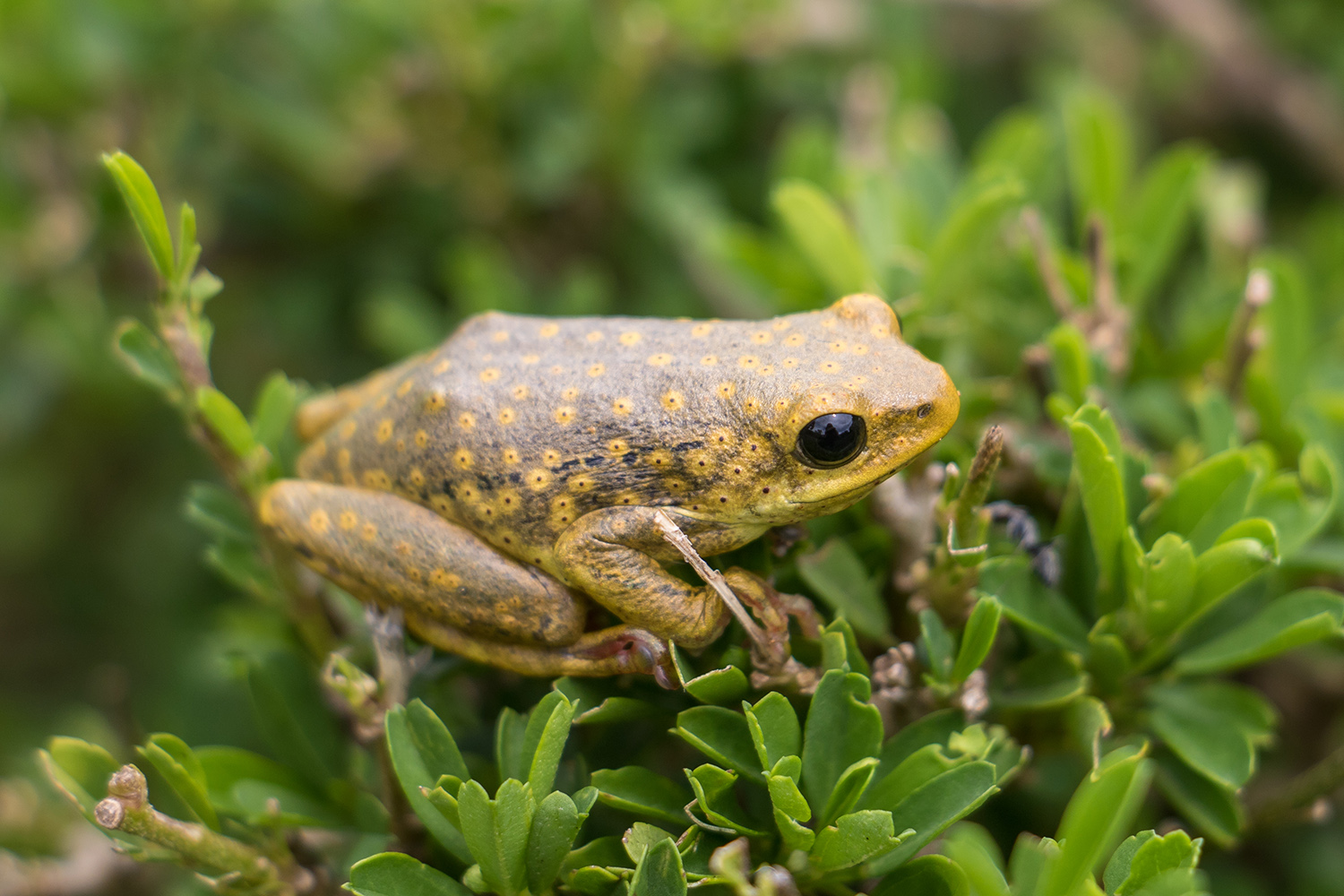
Their walks along the stream yielded many interesting finds. An interesting morph of the Common Reed Frog caught their eye. [f 5.60, 1/250, ISO 100] – Photograph by Tyler Davis
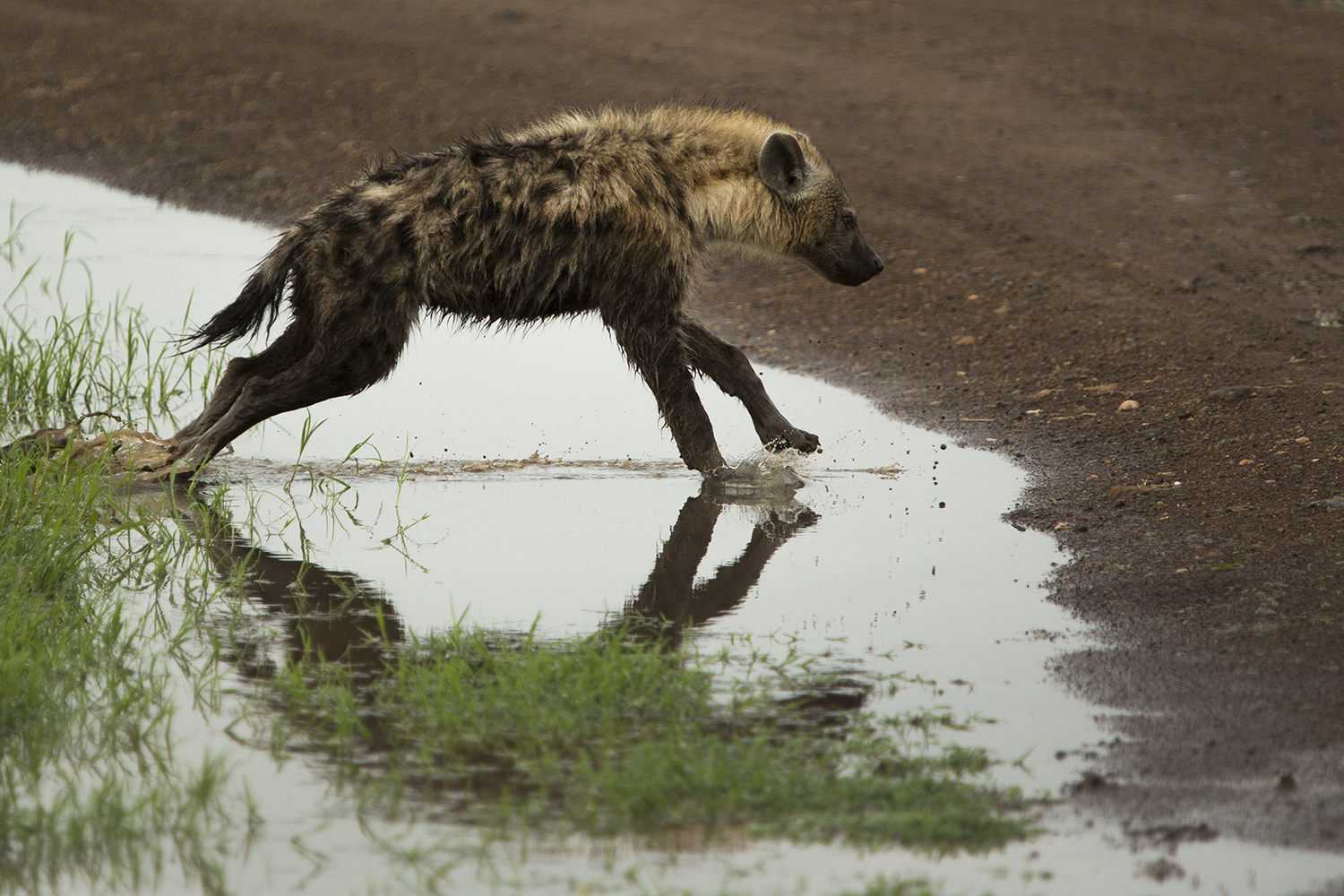
Once the rain had passed the Mara came immediately to life. Photographically the water adds an entirely new dimension. [f 4.0, 1/1600, ISO 500, -0.33]
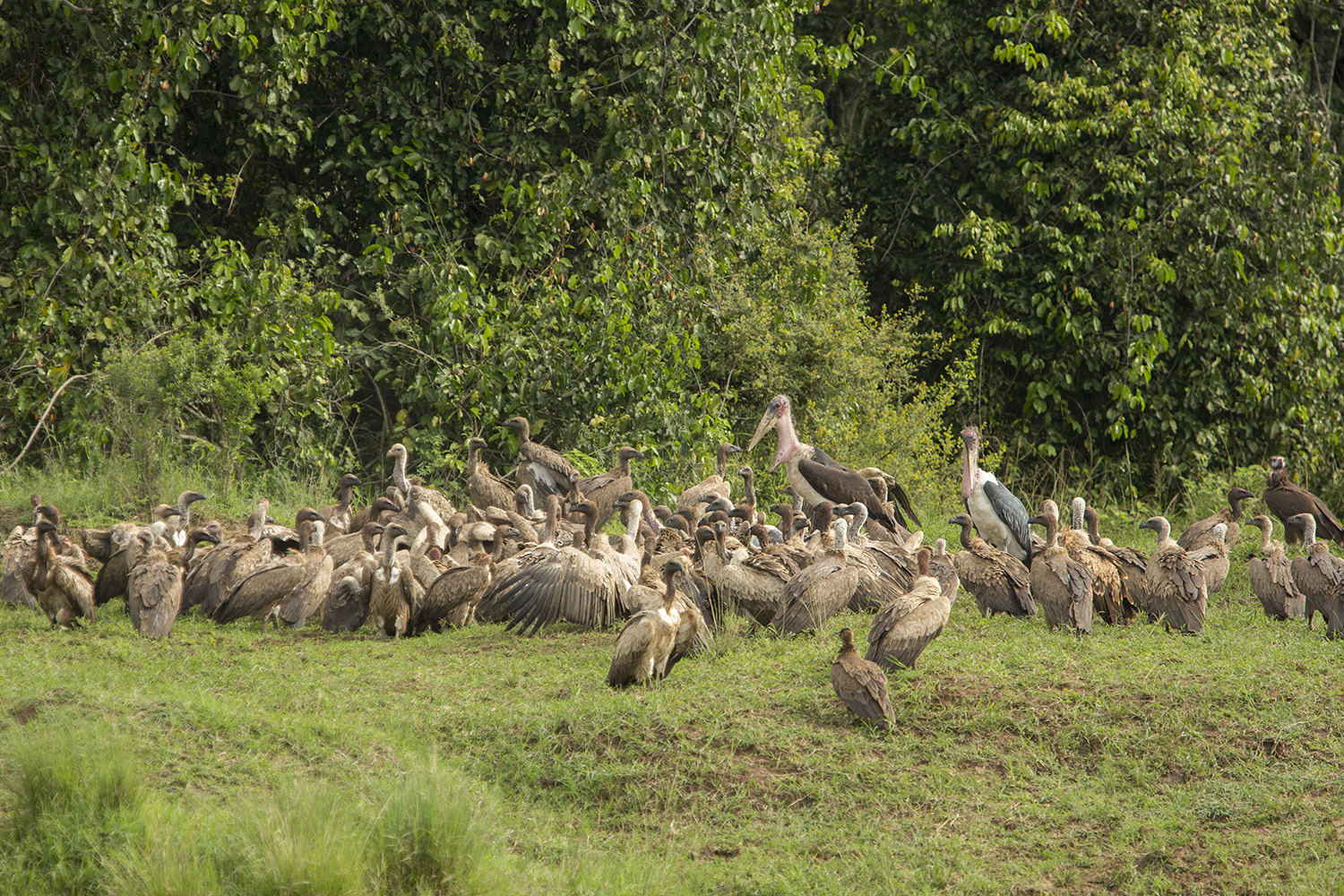
We came across the intact carcass of a female waterbuck on the banks of the Mara River. At first there were two White-backed Vultures dissecting the body. Within 30 minutes there were over 150 vultures in a feeding frenzy. An entire antelope left as skin and bones in about an hour. [f 4.5, 1/1000, ISO 500, +0.33]
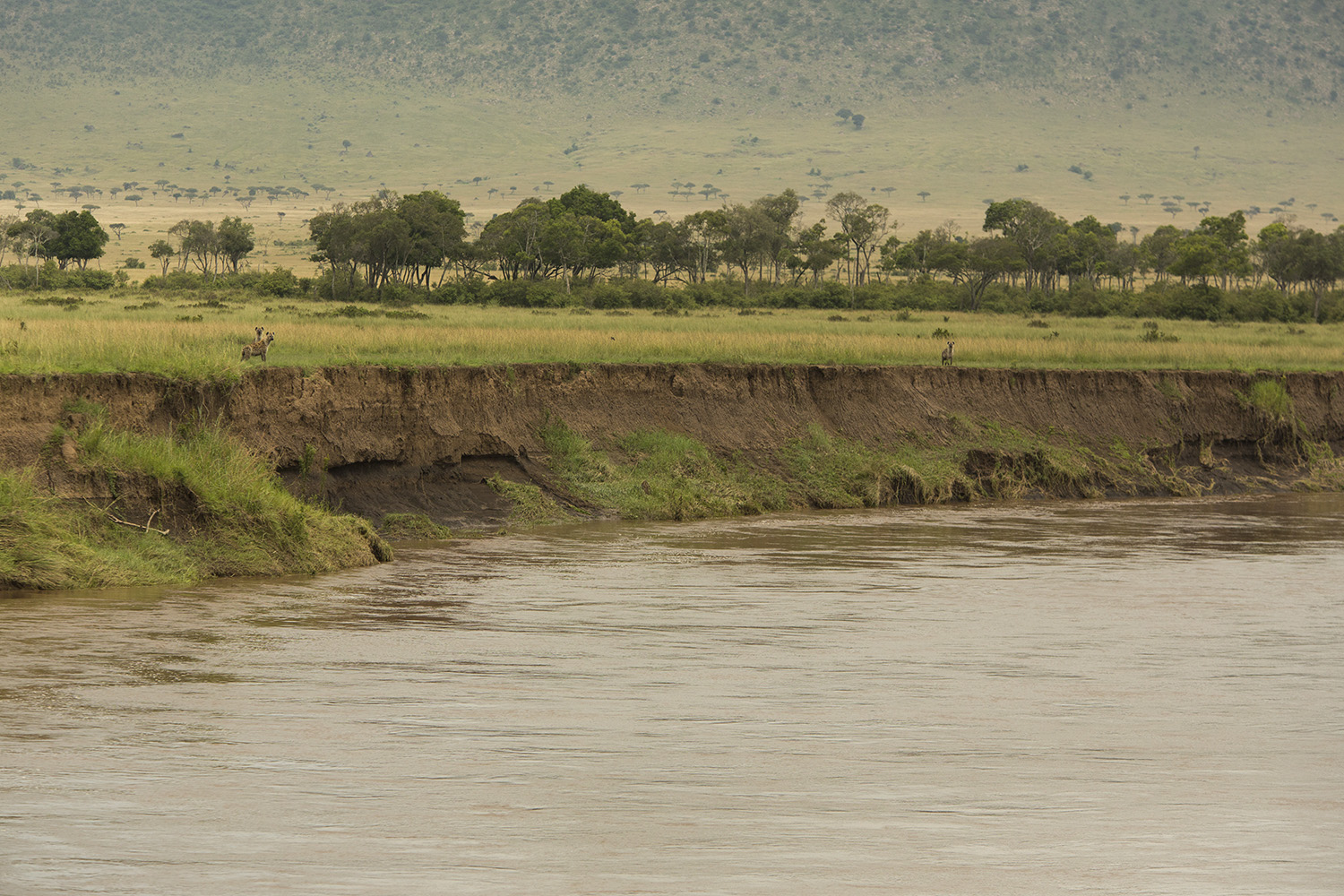
As vultures literally rained down on the carcass a clan of nearby hyenas grew interested and bounded over. However, much to their disappointment, they found themselves on the wrong side of the river. They contemplated crossing for a long time before deciding the current was too strong, the river too deep and the crocodiles too hungry. [f 5.0, 1/5000, ISO 800]
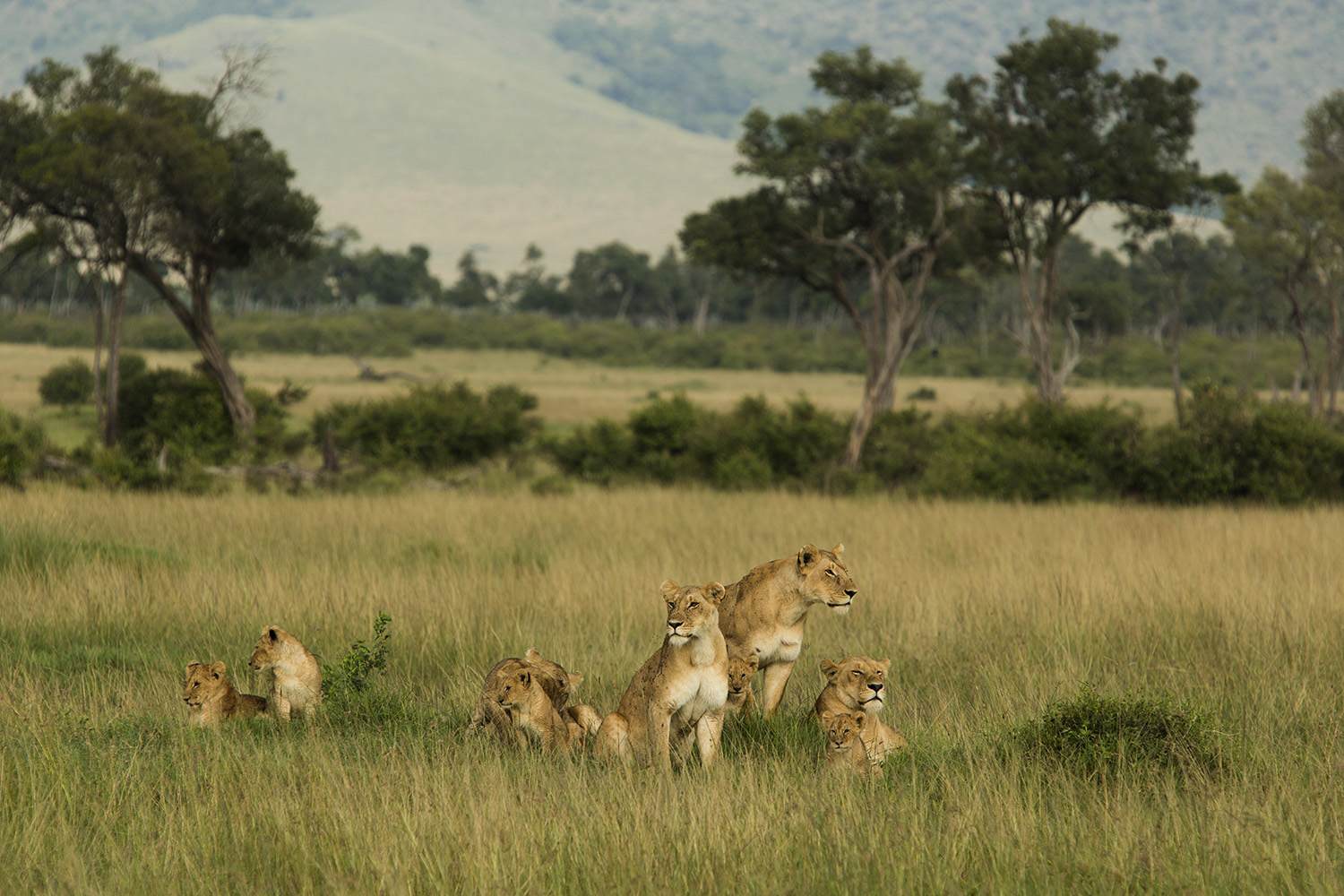
This week we were fortunate to spend time with the ever-growing members of the Marsh Breakaway Pride. A pride with a grand history and a bright future. [f 6.3, 1/800, ISO 400]
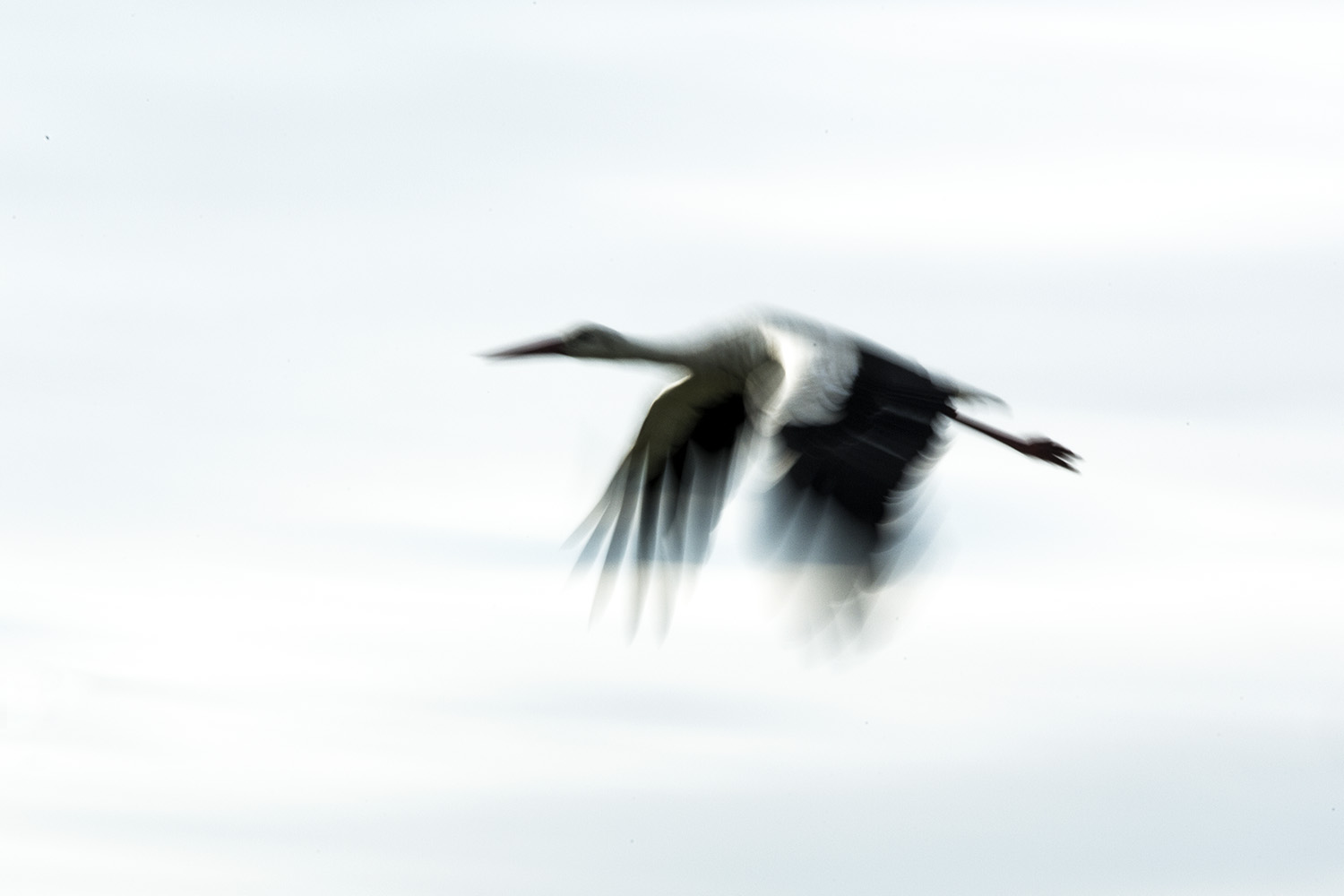
Experimenting with a photographic technique called ‘Motion Blur’, I slowed down the shutter speed, panning with the subject, and captured a rather abstract image of a bird in flight. The White Storks are currently migrating northwards Europe and so I felt that a photograph showing movement would be more effective than a fast shutter speed and a pin sharp bird. [f 22.0, 1/20, ISO 320, +0.33]
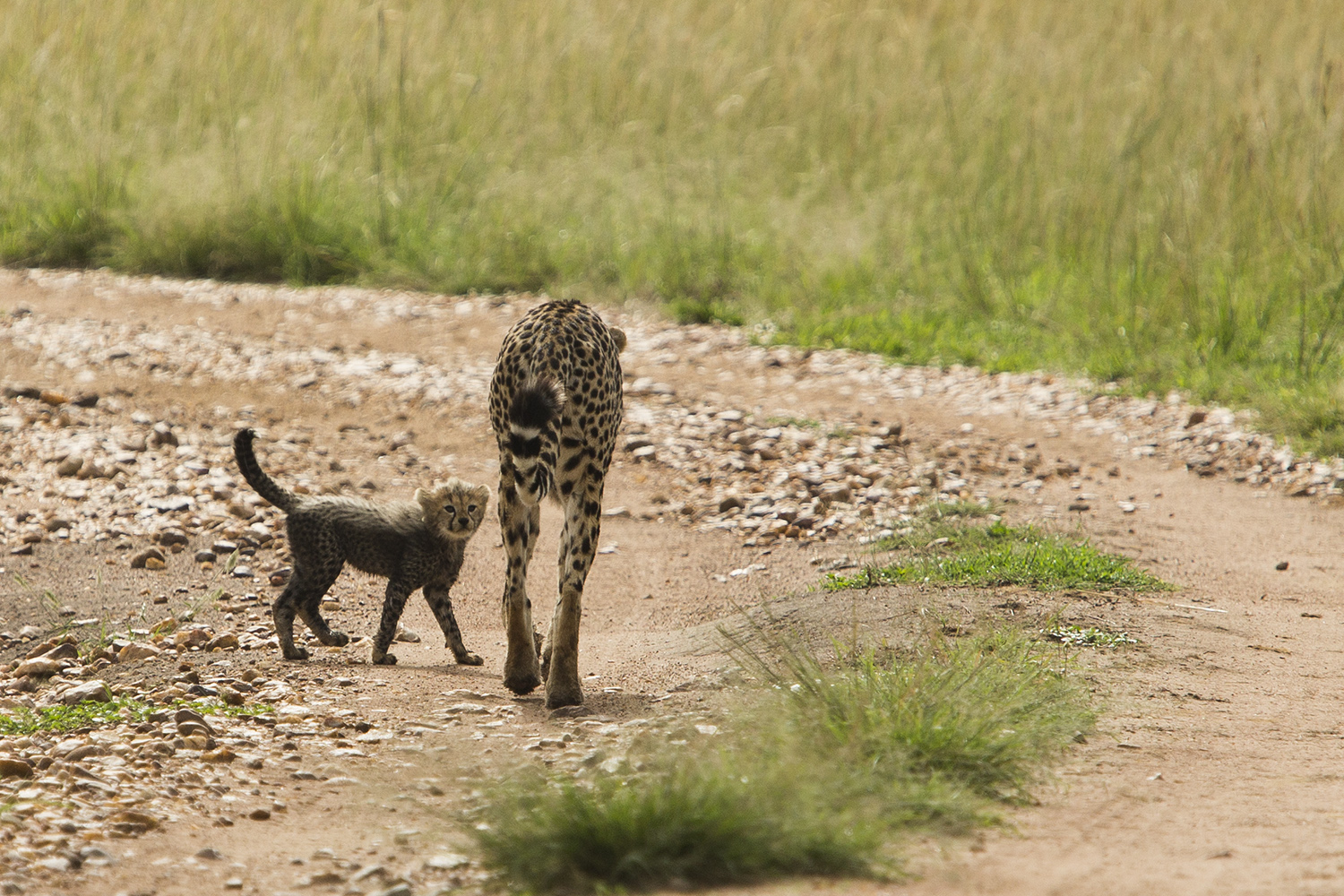
When it comes to baby animals a one-and-a-half month old cheetah cub is hard to beat. Imani and one of her cubs share an intimate moment. [f 5.0, 1/2500, ISO 400, +0.33]
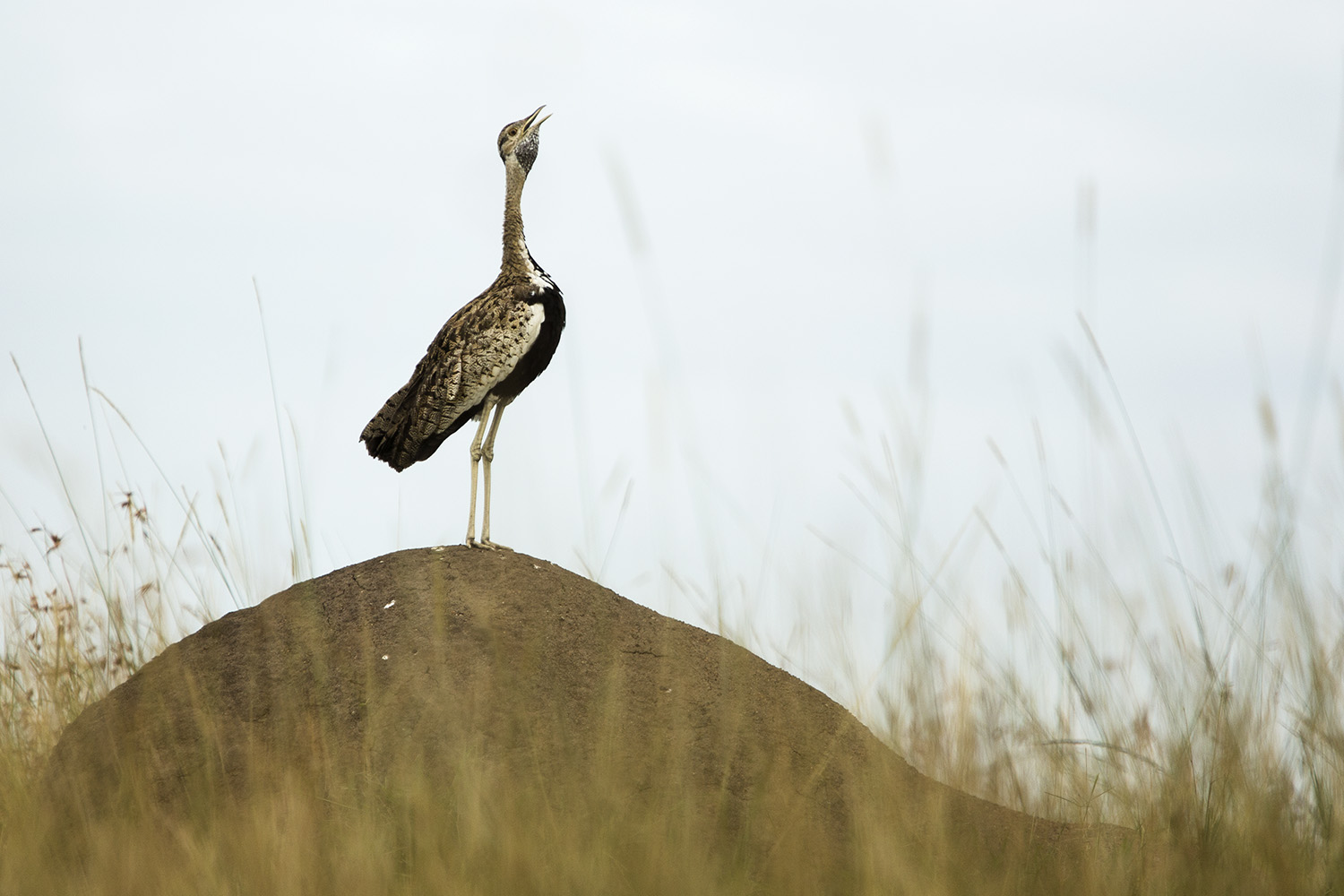
A male Black-bellied Bustard proudly stands on a termite mound making himself more visible. He reaches up, exposing the black line running down his belly, and making a croaking call before suddenly pulling his neck against his breast, letting out a characteristic popping sound. [f 4.0, 1/3200, ISO 400, +0.67]
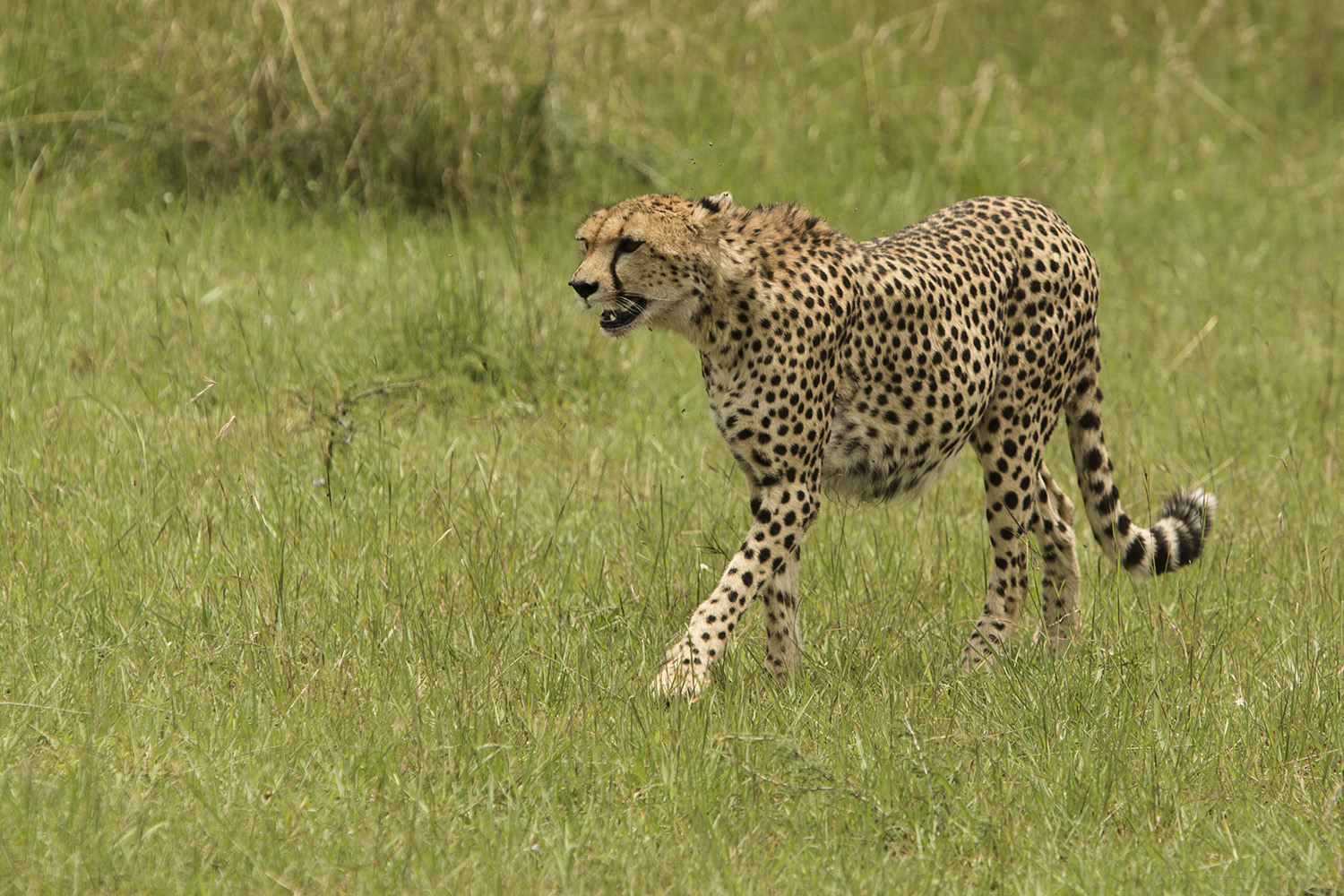
According to the Mara Cheetah Project this is the first recorded sighting of this individual cheetah in the Mara for nearly a year. She is one of Amani’s daughters and her name is Karembo. Born in late 2014 this cheetah moves huge distances and has sadly had very little success raising cubs. It is assumed that she must be resident in Tanzania’s Serengeti and so a sighting of her in the Mara was very special. [f 6.3, 1/640, ISO 160]
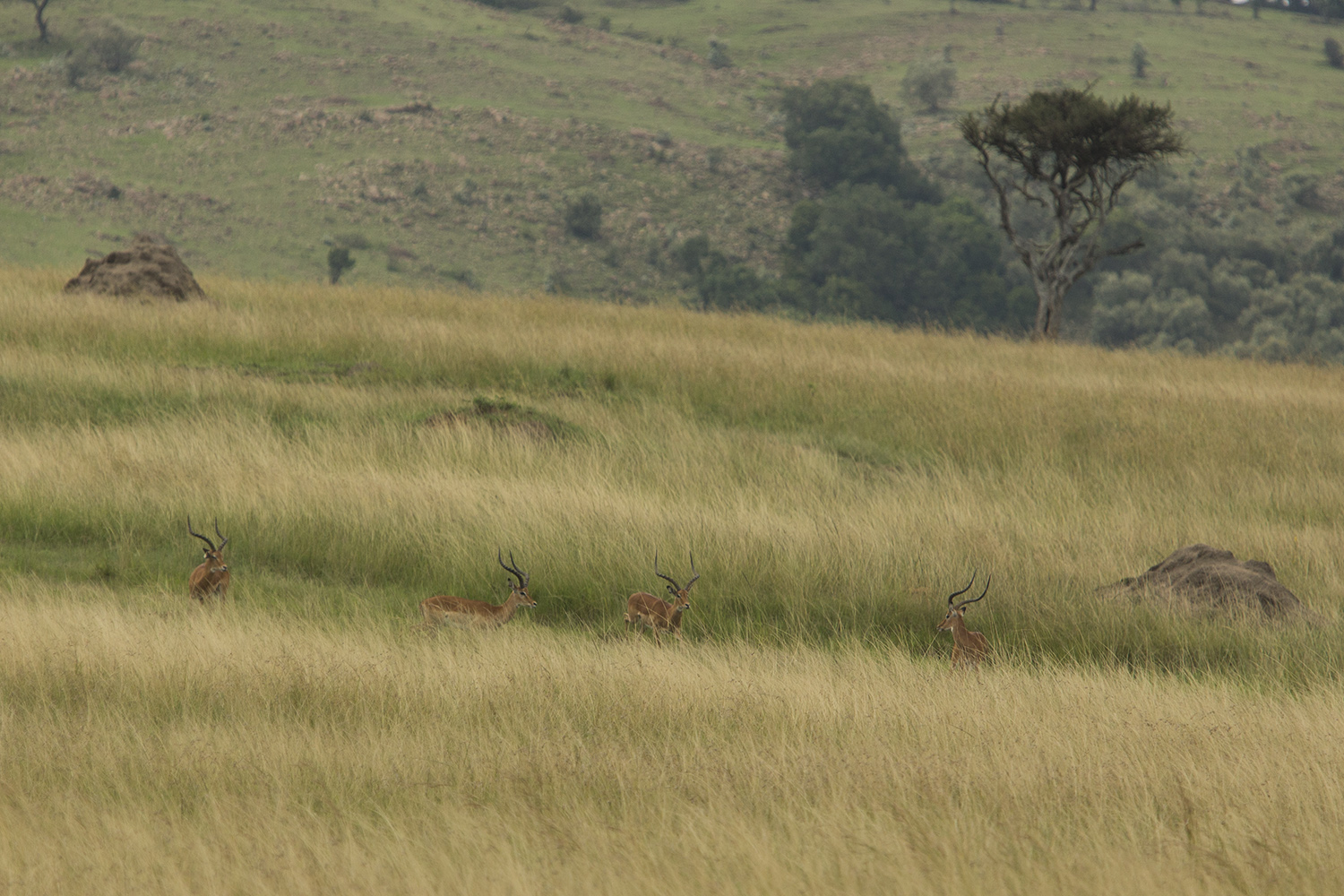
We sat for a good half an hour in silence. Cameras at the ready – no one dared move an inch. The lioness had carefully maneuvered herself into position in the long grass. The small bachelor herd of impala didn’t have a clue she was there. Can you spot the lioness? [f 5.0, 1/2500, ISO 500, +0.33]
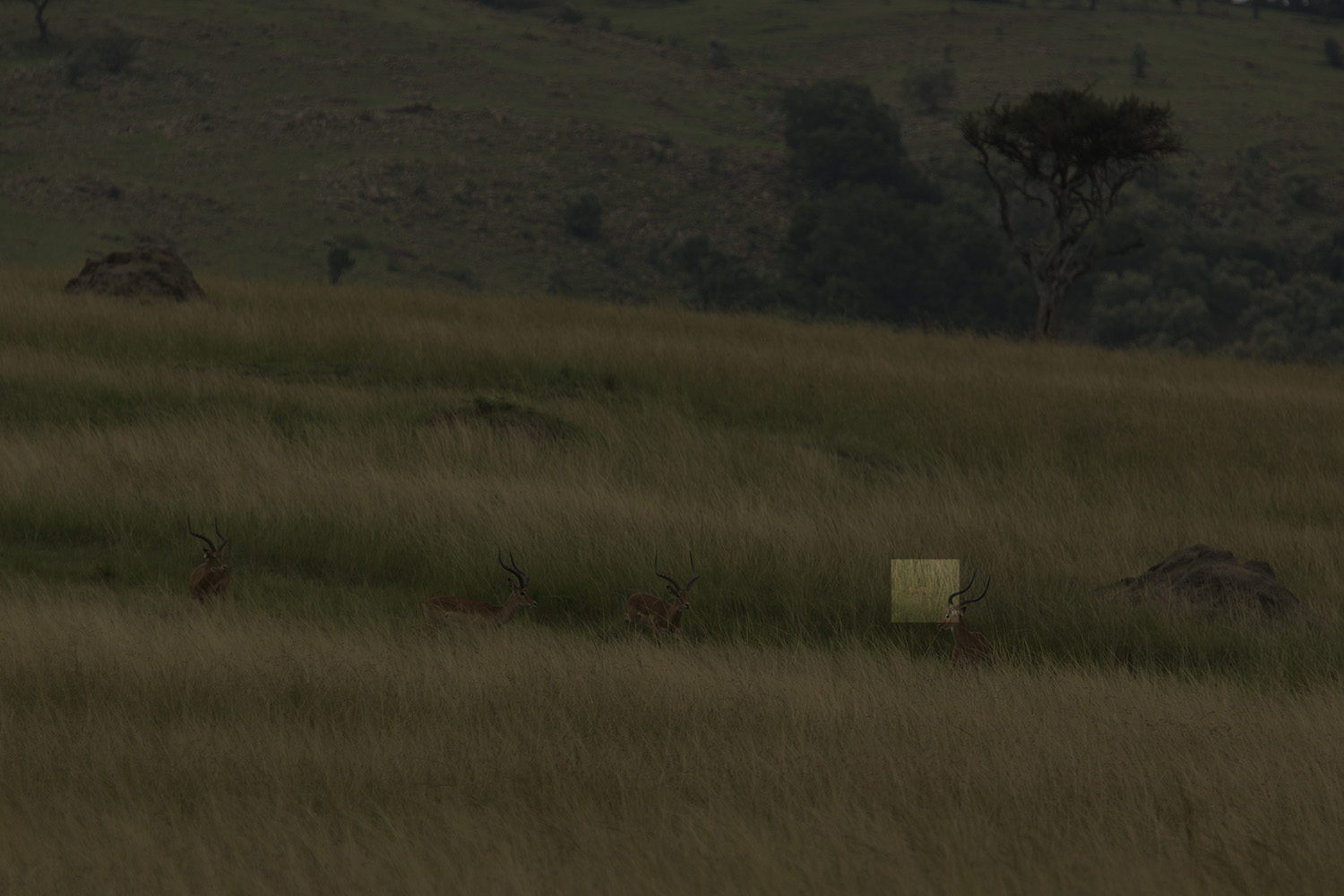
She got to within 5 meters of the prey and was perfectly poised for the ambush, but never opted to try, instead letting the impala move away non the wiser. My personal take on this was that she is the lead female of the very large Angama Pride and with so many mouths to feed, the potential consequences of getting speared and injured by a long sharp horn were simply not worth the risk. Had they been female impalas I have little doubt the result would have been different. [f 5.0, 1/2500, ISO 500, +0.33]
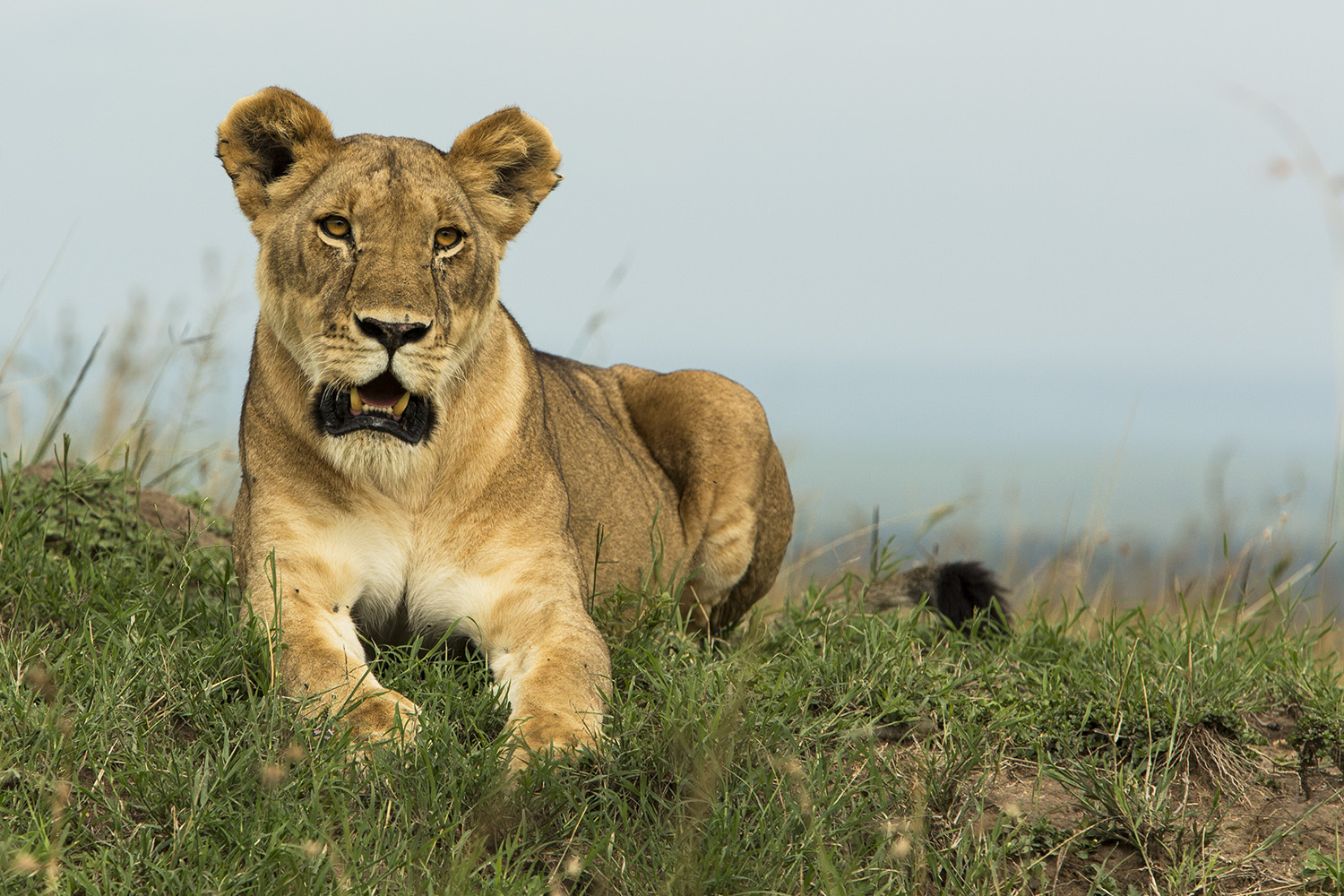
Here sits the same female – matriarch of the Angama Pride. The heavy rainstorm the previous night had resulted in one of her youngsters getting separated from the pride. The lioness has spent the last two days walking around nose to the ground and calling for her missing cub. We cling to hope for a happy ending… [f 8.0, 1/1000, ISO 500, +0.67]
TAGGED WITH: Wildlife, Photography, Maasai Mara, Angama Pride, Mara Triangle, Hyena, Wildlife Photography, vultures, Cheetah



COMMENTS (2)
Paul Bannister
March 25, 2018Motion Blur is the most amazing photo ….it looks like a Japanese painting.
REPLYAzei
April 4, 2018Amazing week Adam! Indeed the Mara never fails to deliver
REPLY